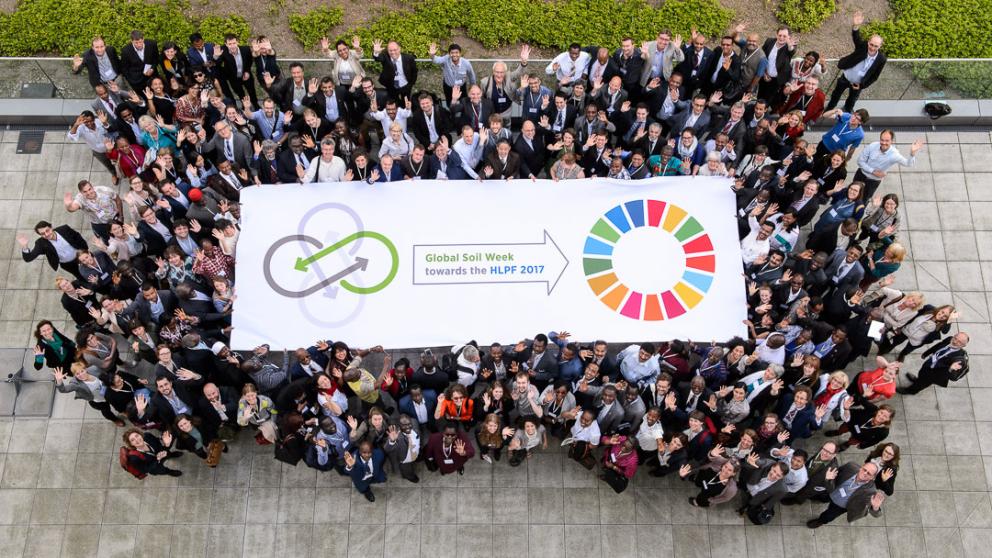Global Soil Week
Duration

Soils and land are the basis for 95 per cent of the world’s food production. They are an enormous source of biodiversity and play an important role in climate change mitigation by storing carbon. But billions of tonnes of soil are either lost to erosion or sealed over every year, affecting roughly 1.5 billion people worldwide. Famine and growing conflicts over land use are just some of the consequences of this development.
Promoting sustainable soil management
Held annually, Global Soil Week highlights the vital importance of soils for sustainable development and climate change mitigation. The conference brings together policymakers and stakeholders from the private sector, science, and civil society to develop strategies and measures that support sustainable soil management and land governance, with a particular focus on the roles of states, government agencies, and local authorities.
Connecting science with policymaking
The Global Soil Week is both a platform and a process. Working in close cooperation with other IASS projects such as the SDG Science Platform and the Ocean Governance project, the research team supports efforts to implement the UN Sustainable Development Goals and acts as a catalyst for further action. Policy advice generated by researchers involved in this project underpins the work of the IASS at the science-policy interface.
The Global Soil Week programme features both a global and regional events with thematic workshops. Other project outputs include the development of joint priorities and thematic reviews for the implementation of global agreements on sustainable development, with a particular focus on issues around sustainable land management.